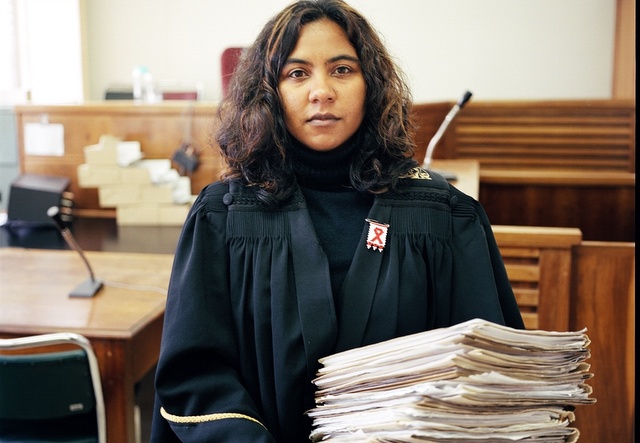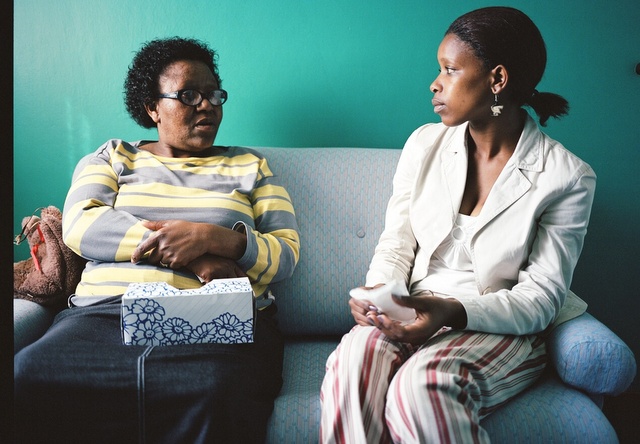Highlight of the Month
Rape Crisis Cape Town Trust is the oldest women’s organisation in South Africa dealing with adult rape. They began as a volunteer led feminist women’s collective and were compelled by the changing fundraising climate in the early 1980s to develop into a professionally run civil society organisation. The organization nonetheless maintained a strongly feminist approach and a national reputation for replicating unique and innovative best practise models and doing work that covers a spectrum of activities that include service delivery, public awareness raising and advocacy as essential components of our theory of change.
Rape Crisis Cape Town’s relationship with government, particularly at the provincial level, is described by them as collaborative but also challenging in that they provide information to the government that influences decision makers and that is based on the direct experience of our clients. They also have a strong network of partners while lends great support when lobbying
influential role players at both the national and provincial levels of government. Through collaboration the organization is able to develop strategies to address flaws in the criminal justice system that disadvantage the rape survivor. Their offices in Khayelitsha, Athlone and Observatory reflect all of the diverse demographics of the clients and communities we serve.

Their vision and mission:
Rape Crisis Cape Town Trust has a vision of a South Africa where the criminal justice system supports and empowers rape survivors in all its interventions. The organizations mission is to provide a bridge between survivors and the system so that more survivors report rape, rape incidents decrease, survivors experience reduced secondary trauma within the system and the conviction rate of rapists improves. They aim to to achieve this through coordinated action between three main programmes: (1) counselling, crisis containment and court support directly to survivors, (2) training and awareness programmes to civil society organisations, government partners and community groups and (3) advocating for law reform with partners in the sector.
How they make every woman count:
Rape Crisis’s ethos, which informs all work with survivors and communities and permeates all projects and processes within the organisation, is based upon the principles of empowerment; respect, choice, support and safely. Through these principles and through the recovery process, women are able to regain their sense of personal agency and make their own decisions within their lives.
Rape Crisis has between 60 – 80 trained community volunteers offering direct service delivery under the supervision and mentorship of trained staff members. Their volunteers come from a diverse range of backgrounds speaking mainly English, Afrikaans and Xhosa, but also some speak Swahili, Lingala and French in order to assist the growing number of foreign nationals. They described to us that some of the organizations volunteers are students looking for experience who will go on to study psychology, law or politics, others are housewives and mothers looking to make a difference in our country rather than remaining passive, many are unemployed and looking to develop a stronger skills set and still others are gender activists hoping to empower women to take up the challenge of living in a society that is not free from violence.
Success Highlights:
- Improved services to rape survivors both prior to entering and within the Criminal Justice System in order to minimise secondary victimisation and increase the effectiveness of trials so that conviction rates are increased above the current 4,1% baseline. Special projects within this area of work include their Court Support Project, the Shukumisa Campaign and partnerships with the National Prosecuting Authority’s Thuthuzela Care Centres which are one stop multidisciplinary centres for rape, domestic violence and child abuse.
- Improved services to rape survivors in communities preventing extended psychological trauma and further physical harm. Special projects within this area include the Speak OuT project where rape survivors speak publicly about their experiences for various reasons and in a variety of different ways and the Stop the Bus Campaign during the 16 Days of Activism where they take their work out to rural areas in the Western Cape.
- Research into a replicable model for prevention through interventions with youth that modify social norms both in terms of attitudes and behaviour so that the number of rape incidents is reduced and there is increased reporting of rape. The special project relating to this area is the Birds and Bees Youth Camp where Rape Crisis trained peer educators come together to share learnings.
- Research capacity is developed within Rape Crisis so that their advocacy work has a greater effect. In the area of research capacity for advocacy work they have partnered with the Women’s Legal Centre, the Open Democracy Advice Centre, the national Department of Social Development and the United Nations Office on Drugs and Crime (UNODC) to conduct research into the feasibility of victim empowerment legislation.
- Rape Crisis has partnerships at local, provincial and national levels as well as some limited international partnerships with civil society organisations, networks, government departments, academic institutions and development agencies. The organization also has international partnerships with international development agencies working in Southern Africa and with overseas universities seeking academic practice placements for their student interns.
Challenges
- Over the past three years the organization has lost a significant amount of funding from European donors who, as a result of the global economic crisis. Further, local corporate social investors were not able to increase their spending since their budgets are tied to their earnings and their earnings were affected by the poor performance of the South African economy. Going forward, they say they are going to need even more support from local foundations, from Corporate Social Investors, from philanthropic organisations, from international aid agencies and, perhaps most importantly of all, from individuals.
Individuals can donate at http://rapecrisis.org.za/support-us/donate/ to enable them to continue to provide essential services to rape survivors and to ensure our ongoing sustainability.
- An increase in reported rapes remains a key challenge. Police statistics state that in 2011/2012 there were a total of 9193 sexual offences reported to the South African Police Services (SAPS) in the Western Cape. With volumes this high, building an organisation that delivers the essential services that women need after rape is an enormous challenge. In this period the organization offered direct assistance to just over 5000 rape survivors with a staff compliment of 16 supporting, supervising and coordinating the direct efforts of between 60 and 80 trained volunteers.
Contact Person: Kathleen Dey, Director
Address: 23 Trill Road PO Box 46
Observatory Observatory
Cape Town Cape Town
7925 7935
Telephone: (021) 447-1467
Fax: (021) 447-5458
Email: This email address is being protected from spambots. You need JavaScript enabled to view it.
Website: www.rapecrisis.org.za
Mobisite: rapecrisis.mobi
Facebook: www.facebook.com/rapecrisiscapetown
Twitter: @RapeCrisis


